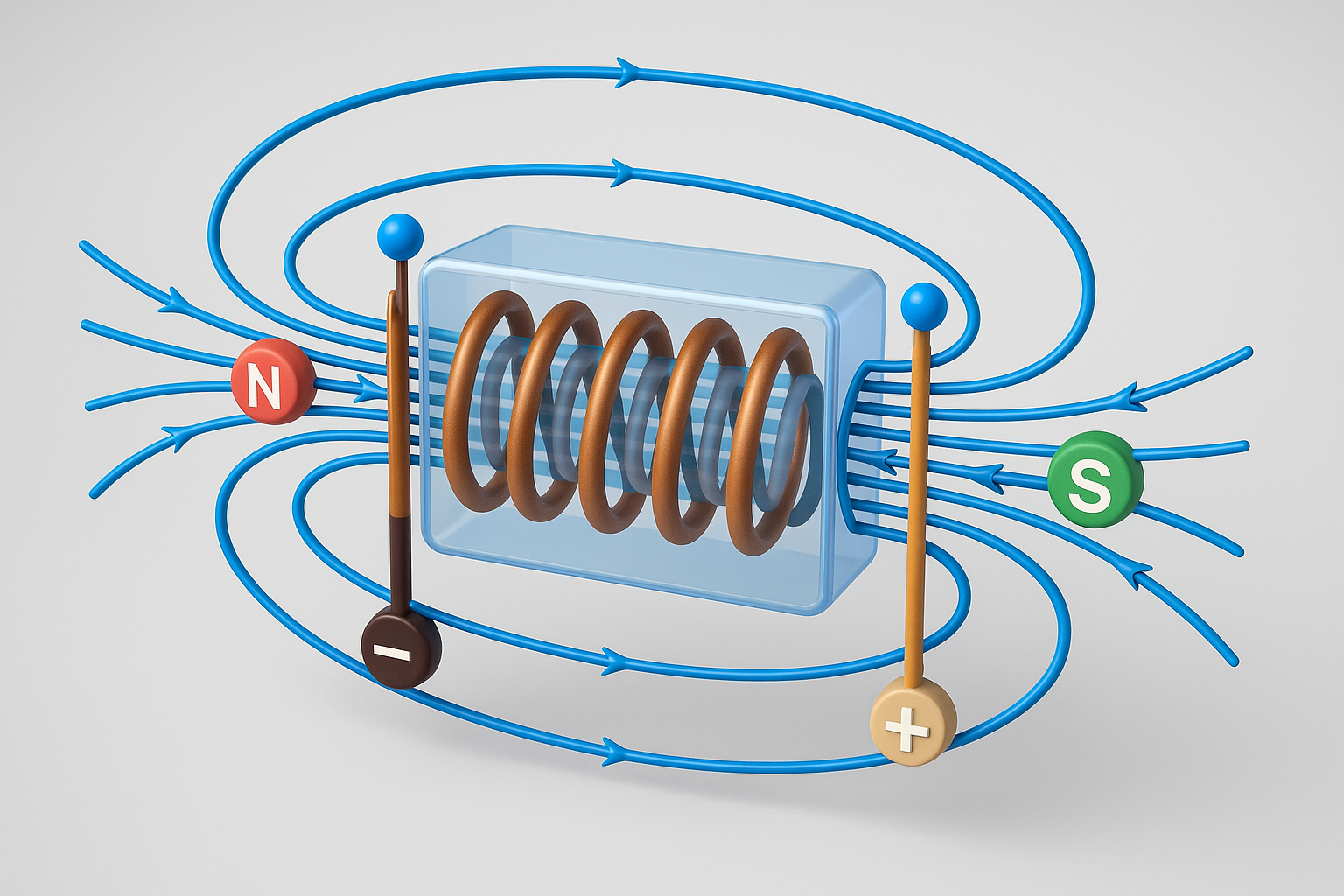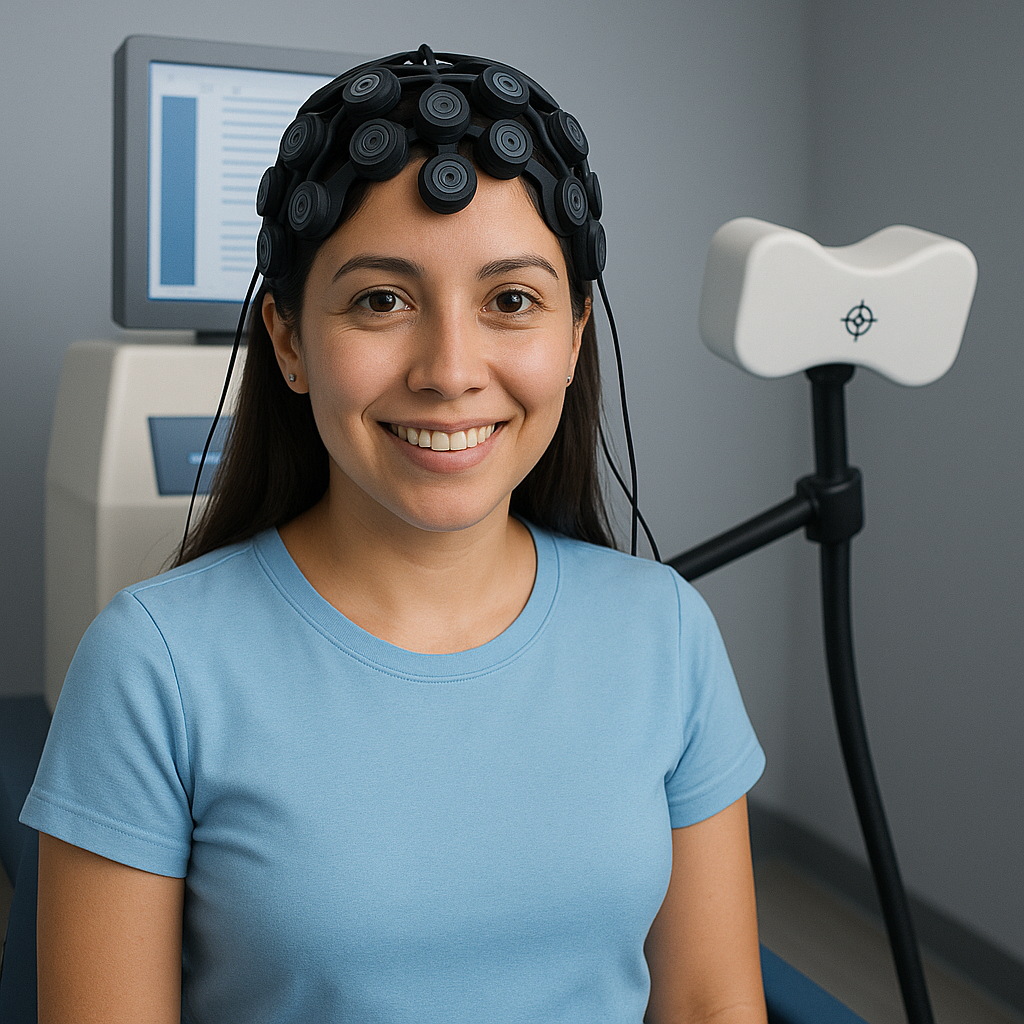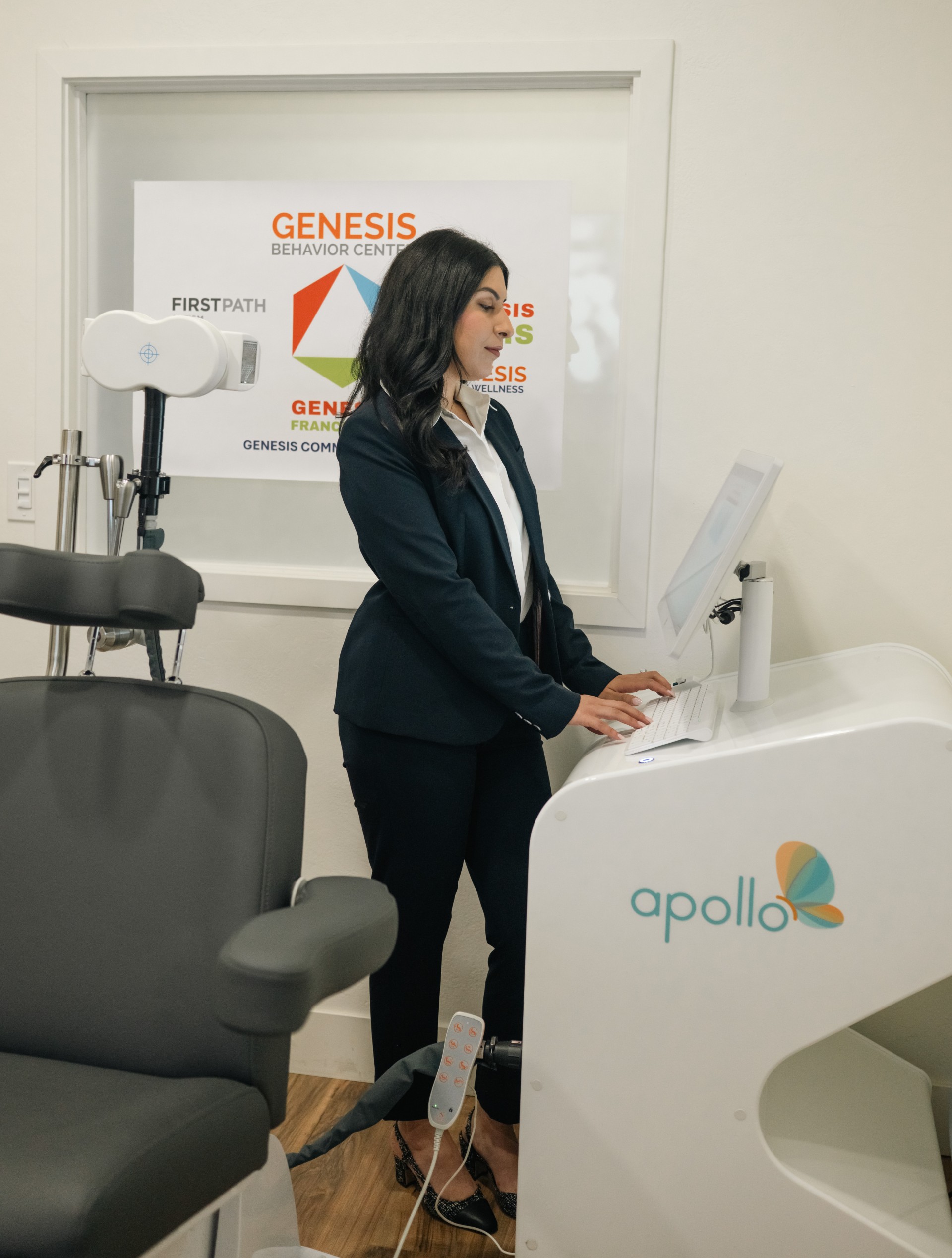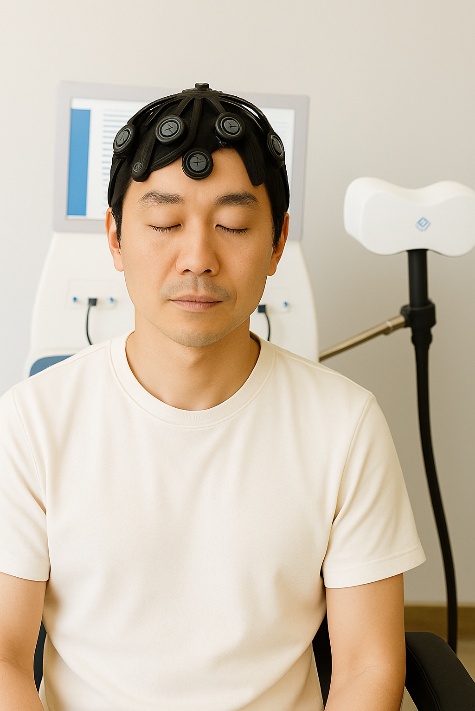
In addition to these FDA-approved uses, research is rapidly expanding into conditions such as PTSD, postpartum depression, ADHD, dementia, and beyond, making TMS one of the most exciting frontiers in neuroscience-based mental health care.
How Genesis TMS with FirstPath AI Stands Apart
| Conventional TMS | Genesis TMS with FirstPath AI |
|---|---|
| Standardized protocols applied uniformly across patients | Physician-directed TMS protocols supported by clinical data, analytics, and EEG assessments reviewed by licensed clinicians |
| Basic symptom check-ins with limited objective data | Comprehensive, structured progress tracking with AI-assisted analytics and real-time data capture across treatment milestones |
How TMS works?
Targeting the Brain with Precision
Transcranial Magnetic Stimulation (TMS) is a non-invasive, FDA-cleared therapy that uses targeted magnetic pulses to stimulate specific regions of the brain involved in mood regulation, cognition, and emotional processing.
EEG-Guided Individualized with FirstPath Software
At Genesis TMS, treatment begins with EEG brain mapping. Our proprietary FirstPath AI Software analyzes your brain’s electrical activity and identifies neural circuits that are underactive or dysregulated. This data is then used to generate a individualized stimulation protocol, which is reviewed and approved by our physicians.


- TMS induces small electrical currents that restore connectivity between brain regions.
- Research shows that repeated stimulation sessions lead to neuroplastic changes — strengthening healthy networks and reducing abnormal activity associated with conditions like depression, anxiety, Obsessive Compulsive Disorder (OCD) Post Traumatic Stress Disorder (PTSD) , and Attention-Deficit/Hyperactivity Disorder (ADHD).
- By directly modulating brain circuits, TMS can improve mood, focus, memory, and overall brain function without medication or invasive procedure
What to Expect during a TMS Session
- Comfortable Experience:
Sessions are conducted while you sit in a reclining chair. Most patients describe the sensation as a light tapping on the scalp.
- Non-Invasive & Drug-Free:
No anesthesia, sedation, or needles. You remain fully awake and alert throughout treatment.
- Efficient & Painless:
Each session lasts about 10-20 minutes, delivering focused magnetic pulses to the targeted brain region.
- No Downtime:
After treatment, you can drive yourself home or return to work, school, or daily activities immediately.
- Individualized Care Approach:
At Genesis, each treatment plan is physician-directed and supported by clinical data, structured progress tracking, and optional EEG assessments reviewed by your clinician. FirstPath AI assists with organization, documentation, and trend analysis to support ongoing clinical decision-making throughout care.

TMS Treatment Course
- Duration: Most patients complete a course of 4–6 weeks, with 5 sessions per week.
- Cumulative Effect: Improvements build gradually as repeated stimulation strengthens neural connections and promotes neuroplasticity.
- Progress Monitoring: Outcomes are measured at milestone sessions (5, 10, 20, 30, 36) using validated scales (PHQ-9, GAD-7, ISI, MoCA, etc.), so both patients and clinicians see quantifiable progress.
- Long-Term Benefits: Many patients maintain improvements well beyond the treatment course, and booster sessions can be scheduled if needed.
Who can benefit from TMS?
TMS (Transcranial Magnetic Stimulation) is FDA-approved for the treatment of:
- Major Depressive Disorder (MDD): Especially for individuals who have not experienced adequate relief from antidepressant medications.
- Obsessive-Compulsive Disorder (OCD): Providing a non-invasive option for those who continue to struggle with symptoms despite other treatments.
- Anxious Depression and Other Conditions: TMS is also being studied and used in clinical practice for a range of related mood and anxiety disorders, offering hope to patients who may not have responded to traditional therapies.

Patients who have not found relief with medication.

Those experiencing severe side effects from antidepressants.

Individuals seeking a drug-free, non-invasive depression treatment.
Brain Wellness Starts Here
Schedule Your Next Appointment Today!

